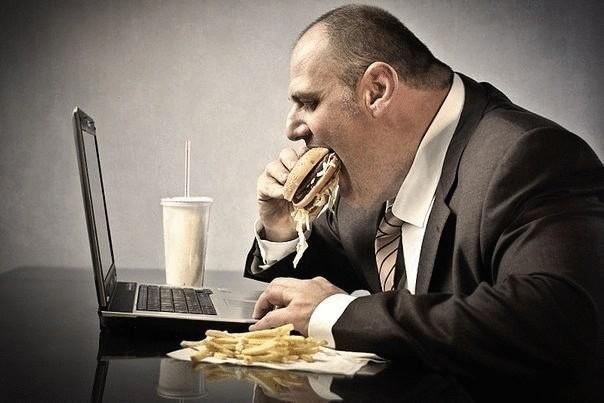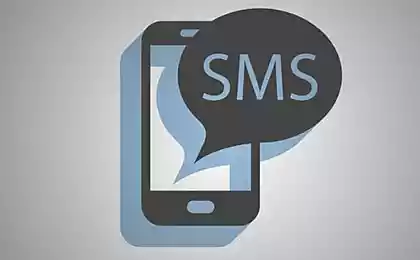229
7 things that destroy our happiness in the 21st century: sensational observations
The 21st century has been a century of comfort. We are surrounded by smart machines that save a lot of time and good old inventions that amaze the imagination, in the late 18th - early 19th century no longer needed. But that's not the limit. .

It seems that the days are not far off when science and technology will be able to make everything around us robotic, and we will only have to lie on the couch and just by the power of thought communicate with a person from the other side of the planet, or watch a movie shown directly in the brain rather than on a TV screen. The most amazing thing is that even this won’t be the miracle that every new invention used to be. Just look at a list of incredible phenomena that are easily explained by science.
But despite all these conveniences and miracles, the 21st century is making people miserable. And all this is due to the development of science and technology. With so many devices and gadgets, we don’t need anyone else. Research shows that one in four people on the planet has no one they can trust. The average number of close friends we can name often decreases very quickly. And that's only happened in the last 20 years. But why?
What destroys our happiness:
1. We filter people out of our lives.
And that's not sarcasm. Irritation and annoyance are what foster tolerance and patience. The more irritation we can eliminate from life, the better we cope with it.
The problem is that we're developing an amazingly broad network of technologies designed only to avoid annoying personalities. Making purchases through the Internet, we avoid crowds of slow shoppers, lazily loitering around the market and preventing you from going where you need to go, and disgruntled cashier in the supermarket, tearing anger at the wrong husband on unsuspecting customers. Spent on a home theater with a full-wall monitor and speakers in every corner of the apartment, we avoid someone else’s kid kicking the back of your chair and crowds of inadequate teenagers making inappropriate comments and laughing at the whole audience. In the long line to the dentist, we won’t be disturbed by the stinky old man in the next chair, because we’ll put headphones in our ears and immerse ourselves in reading a book on an iPhone. All! All irritants and annoying people are filtered out!
It would be perfect if it could remove all irritation from life forever. But it's not and never will be. As long as we have needs, we will be forced to communicate with people we cannot stand, whether we like it or not. But we lose this ability to communicate with strangers and endure their squeaky voices, dull sense of humor, foul smell, or disgusting way of dressing. And that is why every encounter with the outside world, a world that cannot be controlled, evokes a burning desire to punch someone in the face.
2. We're short of friends.
We don't choose a place of birth. And each of us from early childhood lives in a city full of people whom we cannot stand. And we go to school together with classmates whom we did not choose and who do not share our interests and hobbies. Someone even gets hit...
But we grow up and find a circle of friends on specialized sites and forums, or organize our own club of fans of the game "Tanky", where only the most loyal are admitted, and fence ourselves off from the rest of the world that does not understand us. Say goodbye to the tedious, awkward, and painful process of communicating with people who are not like you.
But the problem is that peaceful relationships with people who are incompatible with you are crucial to life in society. Even more, relationships with people you can’t stand are society – all these people with opposite tastes and contradictory characters who coexist in the same space and interact, very often gritting their teeth.
Some 50 years ago, all the neighbors gathered in a small crowded stuffy room of one of the lucky ones to watch TV – a new wonder of technology. There was no choice but to wait or not see the TV. And when someone bought a car, the whole house, or even the block, gathered around to look at it. And many of them are still assholes!
But overall, people were happier at work and more satisfied with their lives. More importantly, they had more friends. Even though there was often no way to filter out peers by interest, and often even those who just lived next door were called friends, but they had more close friends than we can boast of today. They were people you could trust.
Undoubtedly, after we manage to overcome this first feeling of irritation, after this sense of superiority called “they listen to other music and do not understand mine” subsides, there comes a sense of need for other people and a desire to be necessary to others at a level above common interests. And the ability to tolerate fools and endure irritation is literally the only thing that allows us to function in a world populated by other people. Otherwise, you become an emo. This is a scientifically proven fact...
3. SMS is not the best way to communicate
It doesn’t even take research to understand that more than 40 percent of what is said in a text message or email is misunderstood. The printed text does not convey intonation, emotions and other non-verbal color of the message. Because of this, a lot of difficulties, resentments and misunderstandings arise.
How many friends do you communicate with online? If 40 percent of your identity is lost in texting, do these people really know you? Do people dislike you through text messages, emails, forums or chat rooms because you are incompatible? Or is it because of the 40 percent misunderstood? And those who like you?
Many people try to make up for the difference in numbers by recruiting hundreds of friends in Odnoklassniki and VKontakte. But the problem is that...
4. Virtual friends only add to loneliness.
Continuing the previous conversation, it should be noted that when communicating with a person in person, only 7 percent of the meaning of everything said is conveyed directly by words. The remaining 93 percent of meaning is hidden in nonverbal forms, including gestures, facial expressions, body language, tone, intonation, etc. Indeed, in most cases, our humor is just sarcasm, but sarcasm can only be seen by intonation. You can't see it in the written text.
That is the main problem. The human ability to absorb the moods of others through this kind of subconscious osmosis is crucial. Children born without it are considered mentally retarded. People with overabundance are called “charismatic” and become movie stars or politicians. It's not what they say. It’s about the energy that they radiate and that gives us a good sense of self.
Living in the Text World, it's all exposed. And this has a side effect: in the absence of feeling the mood of the interlocutor, each line we read passes through the filter of our own mood. Being irritated, any text is perceived with sarcasm and negativity, with a desire to be offended. Worse, if you continue to communicate in this spirit, your mood will not change. After all, people always say something unpleasant. Of course, there's gloom. You are fighting with the whole world! And in these moments, you really need someone who will take a shoulder and shake it. And that leads to the next point...
5. We lack criticism.
The worst thing about not having close friends is not missing birthdays or playing tennis with a wall. Nope! The worst part is the lack of genuine, healthy criticism.
On the Internet, absolutely strangers on forums and in chats can call you as much as you like “sneaky troll”, “nasty hollow”, “pathetic faggot”, “boring”, or “upstart”. But all this is completely irrelevant and all these names and insults should not be confused with criticism, because none of these strangers know you well enough to get to the point. It is an insult to someone who wants to emphasize their hatred for you. Criticize those who want to help, pointing out what is most convenient for you not to know.
It is sad that there are many people who have never had such conversations. Extraneous interference, the cruel truth, those terrible, awkward, twisted, uncomfortable conversations that are possible only with those who see through you, are sometimes terribly necessary.
Email and text messages are the perfect way to avoid such frankness. A printed message can be answered at any time when it is convenient. You can weigh all the words, choose the question that is most convenient to answer. The interviewer will not see your face, your condition, your excitement and irritation, he will not be able to catch you in a lie. Everything is completely under your control. And the other person will never penetrate your armor, will never see you in the worst light, will not recognize the embarrassment that you cannot control. Gone are the days of usual evasions, antics, humiliation and vulnerability, on which real friendship is built.
Go to Vkontakte accounts, look at the images that people create for themselves. Having made dozens of friends on a blog or forum, introducing yourself as the Lord of the Night, it will be quite difficult to tell someone about an acute bout of diarrhea right in the middle of a New Year's corporate party. You will never be able to be yourself, and this is the feeling of extreme loneliness.
6. We are victims of resentment and anger.
Many will argue that the causes of depression are many: people are dying of hunger, countries are turning into Nazi Germany, elderly parents watch stupid television shows and endlessly discuss them, people are dying in senseless wars.
But where did we get so much more negativity than our parents or grandparents did? In the past, humans didn’t live that long, and babies died more often. Terrible diseases were more common. In the old days, the only means of communicating with a friend who moved to another city were a pen, a sheet of paper and a postage stamp. Now we have Iraq, but our parents had Afghanistan, which took 50 times as many lives, and their parents had World War II, which took a thousand times as many. Most of our parents grew up without air conditioning, and their grandfathers and great-grandfathers did not have them at all.
Physically, we’re doing much better today, no matter how much we measure it... but you don’t realize it if you’re reading the news online. Why?
Let’s look at it from this perspective: if some music site publishes an article under the heading “Lyapis Trubetskoy makes good music”, and on the same day, on the same site, another article appears, entitled “Musical critics called the band “Lyapis Trubetskaya” the worst band of all time”, which one, in your opinion, will be more popular? Of course it is. Indignation breeds rumor.
News bloggers know this very well. Every website is struggling for traffic. Even without advertising, they still measure their success by the size of their audience. Therefore, they carefully choose only the stories that incite the greatest interest and resentment. Other blogs begin to reprint the same story and twist from their own perspective. You can flounder all day in this warm, stagnant swamp of indignation and not swim out of it.
Only in such an environment could the wacky conspiracy theories of September 9, 2001, appear, according to which Bush himself blew up the twin towers, and the planes were only holograms. Every leader of the opposition becomes Hitler and every election an apocalypse. That’s because you’re still reading it.
It wasn't a big deal before. We all remember a time when there were only three channels on TV, two of which were broadcast only from lunch. Absolutely all people were united by news outlets that presented information from only one point of view. Some views were belated and twisted. Some of the news was completely suppressed. But everyone heard the same thing.
There is no more effective media. Previously, the same news was simply perceived differently by different people. Today, the same news is presented in different ways. It’s hard to disagree because all the facts are contradictory. A constant feeling of disharmony with the surrounding world leads to increasing tension.
People have always had natural ways to calm their anxiety, but today...
7. We feel unnecessary, worthless, because we are really worthless.
There is one plus in the fact that friends are only online, but no one talks about it.
They demand less of you...
Emotionally, you will always support them, calm them down after the breakup of another relationship, or even talk them out of suicide attempts. But friendship with someone in the real world adds a never-ending list of annoying demands: spend an entire evening fixing their computer, going to the funeral of their loved ones, driving them back and forth while their car is in the workshop, meeting them on the doorstep of an apartment, just when you sat down to watch your favorite TV show, fed a sandwich with the last piece of sausage in the fridge, after hearing that they hadn’t eaten anything all day. But how much easier things are VKontakte, in the ASK and on the forums...
The problem is that the need to do something for people sits in us on a subconscious level. For the past 5,000 years, everyone has understood this, and over the past few decades, they have suddenly forgotten it. We educate adolescents with suicidal tendencies and strive to teach them self-esteem. But, unfortunately, self-esteem and the ability to love oneself comes only after doing the right thing.
Want to break out of this black hole of self-hatred? Remove the greasy hair from your face, get up from behind your computer, and buy a cute gift for someone you hate. Send a card to your worst enemy. Make dinner for the parents. Do something simple, but with a really noticeable result: clean the sewers finally or plant a flower.
You are a social animal that releases happiness hormones when you see the physical benefits of your actions. The form of stress relief through a little discomfort has always been part of our daily lives: in the hunt for gazelles, in the collection of berries, in the climb to the mountain, in a fight with a bear. But not anymore. That's why working in the office makes us miserable.
We do not get physical, tangible results from work. But after two months spent on the construction site in the hot sun, you will repeat for the rest of your days: “I built this,” driving past a house. Maybe that's why mass shootings happen more often in offices than on construction sites.
Physical satisfaction from the dirt under your fingernails can only come when you turn off your computer, go outside and reconnect with the real world. The feeling you feel every time you say “I built this,” or “I grew this,” or “I fed him,” or “I made these pants” is nothing compared to anything the internet has to offer!
P.S. And remember, just by changing your consciousness – together we change the world!
Source: vk.com/creative_jornal?z=photo-59469705_372576363%2Falbum-59469705_00%2Frev

It seems that the days are not far off when science and technology will be able to make everything around us robotic, and we will only have to lie on the couch and just by the power of thought communicate with a person from the other side of the planet, or watch a movie shown directly in the brain rather than on a TV screen. The most amazing thing is that even this won’t be the miracle that every new invention used to be. Just look at a list of incredible phenomena that are easily explained by science.
But despite all these conveniences and miracles, the 21st century is making people miserable. And all this is due to the development of science and technology. With so many devices and gadgets, we don’t need anyone else. Research shows that one in four people on the planet has no one they can trust. The average number of close friends we can name often decreases very quickly. And that's only happened in the last 20 years. But why?
What destroys our happiness:
1. We filter people out of our lives.
And that's not sarcasm. Irritation and annoyance are what foster tolerance and patience. The more irritation we can eliminate from life, the better we cope with it.
The problem is that we're developing an amazingly broad network of technologies designed only to avoid annoying personalities. Making purchases through the Internet, we avoid crowds of slow shoppers, lazily loitering around the market and preventing you from going where you need to go, and disgruntled cashier in the supermarket, tearing anger at the wrong husband on unsuspecting customers. Spent on a home theater with a full-wall monitor and speakers in every corner of the apartment, we avoid someone else’s kid kicking the back of your chair and crowds of inadequate teenagers making inappropriate comments and laughing at the whole audience. In the long line to the dentist, we won’t be disturbed by the stinky old man in the next chair, because we’ll put headphones in our ears and immerse ourselves in reading a book on an iPhone. All! All irritants and annoying people are filtered out!
It would be perfect if it could remove all irritation from life forever. But it's not and never will be. As long as we have needs, we will be forced to communicate with people we cannot stand, whether we like it or not. But we lose this ability to communicate with strangers and endure their squeaky voices, dull sense of humor, foul smell, or disgusting way of dressing. And that is why every encounter with the outside world, a world that cannot be controlled, evokes a burning desire to punch someone in the face.
2. We're short of friends.
We don't choose a place of birth. And each of us from early childhood lives in a city full of people whom we cannot stand. And we go to school together with classmates whom we did not choose and who do not share our interests and hobbies. Someone even gets hit...
But we grow up and find a circle of friends on specialized sites and forums, or organize our own club of fans of the game "Tanky", where only the most loyal are admitted, and fence ourselves off from the rest of the world that does not understand us. Say goodbye to the tedious, awkward, and painful process of communicating with people who are not like you.
But the problem is that peaceful relationships with people who are incompatible with you are crucial to life in society. Even more, relationships with people you can’t stand are society – all these people with opposite tastes and contradictory characters who coexist in the same space and interact, very often gritting their teeth.
Some 50 years ago, all the neighbors gathered in a small crowded stuffy room of one of the lucky ones to watch TV – a new wonder of technology. There was no choice but to wait or not see the TV. And when someone bought a car, the whole house, or even the block, gathered around to look at it. And many of them are still assholes!
But overall, people were happier at work and more satisfied with their lives. More importantly, they had more friends. Even though there was often no way to filter out peers by interest, and often even those who just lived next door were called friends, but they had more close friends than we can boast of today. They were people you could trust.
Undoubtedly, after we manage to overcome this first feeling of irritation, after this sense of superiority called “they listen to other music and do not understand mine” subsides, there comes a sense of need for other people and a desire to be necessary to others at a level above common interests. And the ability to tolerate fools and endure irritation is literally the only thing that allows us to function in a world populated by other people. Otherwise, you become an emo. This is a scientifically proven fact...
3. SMS is not the best way to communicate
It doesn’t even take research to understand that more than 40 percent of what is said in a text message or email is misunderstood. The printed text does not convey intonation, emotions and other non-verbal color of the message. Because of this, a lot of difficulties, resentments and misunderstandings arise.
How many friends do you communicate with online? If 40 percent of your identity is lost in texting, do these people really know you? Do people dislike you through text messages, emails, forums or chat rooms because you are incompatible? Or is it because of the 40 percent misunderstood? And those who like you?
Many people try to make up for the difference in numbers by recruiting hundreds of friends in Odnoklassniki and VKontakte. But the problem is that...
4. Virtual friends only add to loneliness.
Continuing the previous conversation, it should be noted that when communicating with a person in person, only 7 percent of the meaning of everything said is conveyed directly by words. The remaining 93 percent of meaning is hidden in nonverbal forms, including gestures, facial expressions, body language, tone, intonation, etc. Indeed, in most cases, our humor is just sarcasm, but sarcasm can only be seen by intonation. You can't see it in the written text.
That is the main problem. The human ability to absorb the moods of others through this kind of subconscious osmosis is crucial. Children born without it are considered mentally retarded. People with overabundance are called “charismatic” and become movie stars or politicians. It's not what they say. It’s about the energy that they radiate and that gives us a good sense of self.
Living in the Text World, it's all exposed. And this has a side effect: in the absence of feeling the mood of the interlocutor, each line we read passes through the filter of our own mood. Being irritated, any text is perceived with sarcasm and negativity, with a desire to be offended. Worse, if you continue to communicate in this spirit, your mood will not change. After all, people always say something unpleasant. Of course, there's gloom. You are fighting with the whole world! And in these moments, you really need someone who will take a shoulder and shake it. And that leads to the next point...
5. We lack criticism.
The worst thing about not having close friends is not missing birthdays or playing tennis with a wall. Nope! The worst part is the lack of genuine, healthy criticism.
On the Internet, absolutely strangers on forums and in chats can call you as much as you like “sneaky troll”, “nasty hollow”, “pathetic faggot”, “boring”, or “upstart”. But all this is completely irrelevant and all these names and insults should not be confused with criticism, because none of these strangers know you well enough to get to the point. It is an insult to someone who wants to emphasize their hatred for you. Criticize those who want to help, pointing out what is most convenient for you not to know.
It is sad that there are many people who have never had such conversations. Extraneous interference, the cruel truth, those terrible, awkward, twisted, uncomfortable conversations that are possible only with those who see through you, are sometimes terribly necessary.
Email and text messages are the perfect way to avoid such frankness. A printed message can be answered at any time when it is convenient. You can weigh all the words, choose the question that is most convenient to answer. The interviewer will not see your face, your condition, your excitement and irritation, he will not be able to catch you in a lie. Everything is completely under your control. And the other person will never penetrate your armor, will never see you in the worst light, will not recognize the embarrassment that you cannot control. Gone are the days of usual evasions, antics, humiliation and vulnerability, on which real friendship is built.
Go to Vkontakte accounts, look at the images that people create for themselves. Having made dozens of friends on a blog or forum, introducing yourself as the Lord of the Night, it will be quite difficult to tell someone about an acute bout of diarrhea right in the middle of a New Year's corporate party. You will never be able to be yourself, and this is the feeling of extreme loneliness.
6. We are victims of resentment and anger.
Many will argue that the causes of depression are many: people are dying of hunger, countries are turning into Nazi Germany, elderly parents watch stupid television shows and endlessly discuss them, people are dying in senseless wars.
But where did we get so much more negativity than our parents or grandparents did? In the past, humans didn’t live that long, and babies died more often. Terrible diseases were more common. In the old days, the only means of communicating with a friend who moved to another city were a pen, a sheet of paper and a postage stamp. Now we have Iraq, but our parents had Afghanistan, which took 50 times as many lives, and their parents had World War II, which took a thousand times as many. Most of our parents grew up without air conditioning, and their grandfathers and great-grandfathers did not have them at all.
Physically, we’re doing much better today, no matter how much we measure it... but you don’t realize it if you’re reading the news online. Why?
Let’s look at it from this perspective: if some music site publishes an article under the heading “Lyapis Trubetskoy makes good music”, and on the same day, on the same site, another article appears, entitled “Musical critics called the band “Lyapis Trubetskaya” the worst band of all time”, which one, in your opinion, will be more popular? Of course it is. Indignation breeds rumor.
News bloggers know this very well. Every website is struggling for traffic. Even without advertising, they still measure their success by the size of their audience. Therefore, they carefully choose only the stories that incite the greatest interest and resentment. Other blogs begin to reprint the same story and twist from their own perspective. You can flounder all day in this warm, stagnant swamp of indignation and not swim out of it.
Only in such an environment could the wacky conspiracy theories of September 9, 2001, appear, according to which Bush himself blew up the twin towers, and the planes were only holograms. Every leader of the opposition becomes Hitler and every election an apocalypse. That’s because you’re still reading it.
It wasn't a big deal before. We all remember a time when there were only three channels on TV, two of which were broadcast only from lunch. Absolutely all people were united by news outlets that presented information from only one point of view. Some views were belated and twisted. Some of the news was completely suppressed. But everyone heard the same thing.
There is no more effective media. Previously, the same news was simply perceived differently by different people. Today, the same news is presented in different ways. It’s hard to disagree because all the facts are contradictory. A constant feeling of disharmony with the surrounding world leads to increasing tension.
People have always had natural ways to calm their anxiety, but today...
7. We feel unnecessary, worthless, because we are really worthless.
There is one plus in the fact that friends are only online, but no one talks about it.
They demand less of you...
Emotionally, you will always support them, calm them down after the breakup of another relationship, or even talk them out of suicide attempts. But friendship with someone in the real world adds a never-ending list of annoying demands: spend an entire evening fixing their computer, going to the funeral of their loved ones, driving them back and forth while their car is in the workshop, meeting them on the doorstep of an apartment, just when you sat down to watch your favorite TV show, fed a sandwich with the last piece of sausage in the fridge, after hearing that they hadn’t eaten anything all day. But how much easier things are VKontakte, in the ASK and on the forums...
The problem is that the need to do something for people sits in us on a subconscious level. For the past 5,000 years, everyone has understood this, and over the past few decades, they have suddenly forgotten it. We educate adolescents with suicidal tendencies and strive to teach them self-esteem. But, unfortunately, self-esteem and the ability to love oneself comes only after doing the right thing.
Want to break out of this black hole of self-hatred? Remove the greasy hair from your face, get up from behind your computer, and buy a cute gift for someone you hate. Send a card to your worst enemy. Make dinner for the parents. Do something simple, but with a really noticeable result: clean the sewers finally or plant a flower.
You are a social animal that releases happiness hormones when you see the physical benefits of your actions. The form of stress relief through a little discomfort has always been part of our daily lives: in the hunt for gazelles, in the collection of berries, in the climb to the mountain, in a fight with a bear. But not anymore. That's why working in the office makes us miserable.
We do not get physical, tangible results from work. But after two months spent on the construction site in the hot sun, you will repeat for the rest of your days: “I built this,” driving past a house. Maybe that's why mass shootings happen more often in offices than on construction sites.
Physical satisfaction from the dirt under your fingernails can only come when you turn off your computer, go outside and reconnect with the real world. The feeling you feel every time you say “I built this,” or “I grew this,” or “I fed him,” or “I made these pants” is nothing compared to anything the internet has to offer!
P.S. And remember, just by changing your consciousness – together we change the world!
Source: vk.com/creative_jornal?z=photo-59469705_372576363%2Falbum-59469705_00%2Frev
Chrysler-Fiat plans to start production of electric vehicles
"Magnetic" train travels from Paris to Moscow in an hour























